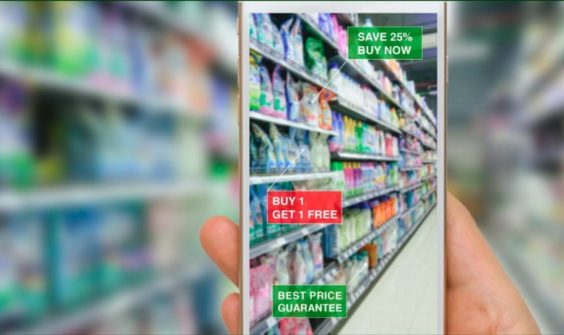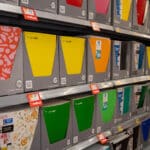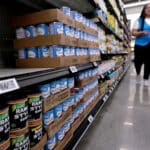It’s a nice bonus when you find a coupon or discount on something you were planning to buy anyway. But to the brand or retailer offering the deal – it’s a waste. Why should they give out discounts to people who don’t need them?
So a new report is urging them to ensure they use deals as an incentive, and not a reward.
The title of a Forrester Consulting study commissioned by the retail technology firm Revionics tells the tale: “Indiscriminate Promotions Cost Retailers”. The report found that 52% of promotions go to shoppers who would have purchased the promoted product without any discount at all.
“Shoppers are bombarded with a myriad of indiscriminate, unsolicited promotions across a variety of channels every day,” the report found. “Retailers are wasting incredible amounts of money on the wrong types of promotions in the wrong channels and on items that shoppers would willingly buy at full price and still feel satisfied.”
The researchers’ proposed solution is to offer more personalized deals. Not only will that prevent sellers from giving away unnecessary discounts, it could free up enough wasted promotional dollars to be able to offer more and better deals to those who are most likely to be influenced by them.
And giving out the right discounts to the right shopper at the right time is important. Being too generous could cause a seller to lose money, while being too stingy could cause a seller to lose a sale.
“Shoppers value promotions that are timely and specific,” the report found. And if they can’t find a promotion on the product they’re considering, “they will wait as long as it takes” to get one.
When it comes to specific types of discounts, shoppers “want straightforward promotions with no ambiguity or interpretation,” the report found. “Offers such as ‘buy X, get Y’ are the least preferred by shoppers. These types of offers can be confusing.” Most popular are simple percent-off and dollars-off discounts, “but buy-one-get-one (BOGO) offers are frequently used on items that are purchased more often, like groceries and personal care products.”
As for personalized prices, shoppers like them – in theory. 65% say they “appreciate when prices are personalized to my shopping habits”. But 47% “get angry when someone else’s personalized prices are lower than my own” and 44% “will return an initial purchase if I find the same item for a better price an hour later”.
They may differ in how they want to get their discounts, but virtually all shoppers agree that they want deals. 40% say the more, the better – they’re willing to receive promotions however sellers want to send them – via phone, social media, email or in stores. “I pick and choose what promotions to consider on my purchasing journey,” these shoppers say. Only 15%, meanwhile, say they “would prefer to see fewer promotions overall”.
Fewer promotions? Who are those people – the ones who happily pay full price for everything?
Brands and retailers may wish there were more shoppers like that. Barring that, “promotions are a critical component of the retail business,” the Forrester report concludes. “Yet it is often a source of tremendous revenue loss. Indiscriminate unsolicited promotions on products shoppers would be content to pay full price for is not the way to provide superior customer service or protect your bottom line.”
It’s nice to get a discount on something you were planning to buy anyway. But if brands and retailers take Forrester’s advice – you may find yourself paying full price a little more often.
Image source: Revionics
















